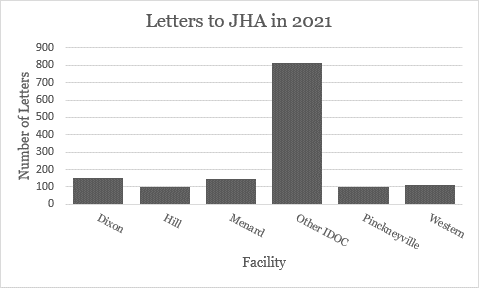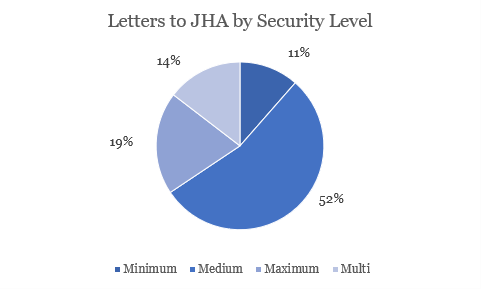Prison Communications 2021
JHA reviews and codes every communication received. In 2021, these communications included over 1,500 letters from people who are incarcerated, as well as 800 calls and emails from people in the community. Each communication or report may raise multiple issues and include various questions. The top five issues communicated to JHA in 2021 were related to access to information; IDOC staff conduct; conditions within the facilities; medical and mental health; and commissary. These five categories of issues represent 50% of the overall issues reported to JHA in 2021. Of interest is that this is the first year since JHA began coding and tracking issues reported that commissary has registered as one of the top issues for the year. Reports regarding commissary concerns tripled in the last three months of 2021 over the previous nine months of the year.
The following data is a summary of the correspondence from people who are incarcerated during the 2021 calendar year:
Note: The “Other IDOC” category is composed of all IDOC facilities other than the five most frequently heard from IDOC facilities in 2021 (Dixon, Hill, Menard, Pinckneyville and Western).
Note: The “Minimum” category is composed of the following IDOC facilities: Decatur, East Moline, Jacksonville, Lincoln, Robinson, Southwestern, Taylorville, Vandalia, and Vienna. The “Medium” category is composed of the following IDOC facilities: Big Muddy, Centralia, Danville, Graham, Hill, Illinois River, Lawrence, Pinckneyville, Shawnee, Sheridan, and Western. The “Maximum” category is composed of the following IDOC facilities: Menard, Pontiac, and Stateville. The “Multi” category is composed of Dixon, Joliet Treatment Center and Logan facilities.
Breaking down the top issue of “Concerns accessing information” further, when people contacted JHA with this issue, they most frequently wrote requesting the following:
Information about and copies of recent bills and how legislation impacts people who are incarcerated. This makes sense given Illinois passed a lengthy and comprehensive criminal justice reform bill in 2021 (the SAFE-T Act).
Information about IDOC-related rules and policies. It should be expected that there is an interest in getting more information about IDOC-related rules since regular practices evolved and shifted in response to COVID-19 outbreaks, staffing, etc., significantly impacting the experience of someone living in a prison.
Information about and copies of case law. This is also expected given that most people who are incarcerated in Illinois did not have access to the law library in 2021.
Requesting representation or attorney referrals by JHA.
When people contacted JHA about the second most frequently reported issue, that of staff conduct, they most frequently wrote regarding the following issues:
Concerns and questions about IDOC practice and policies being enacted by administration and staff (e.g., out-of-cell time, PPE use, calculation of earned sentencing credits).
Non-responsiveness to concerns expressed either formally through grievances and request slips as well as verbally to administration and staff.
Specific concerns related to the proper and consistent use of PPE.
View specific communications summaries from 2021 here:




